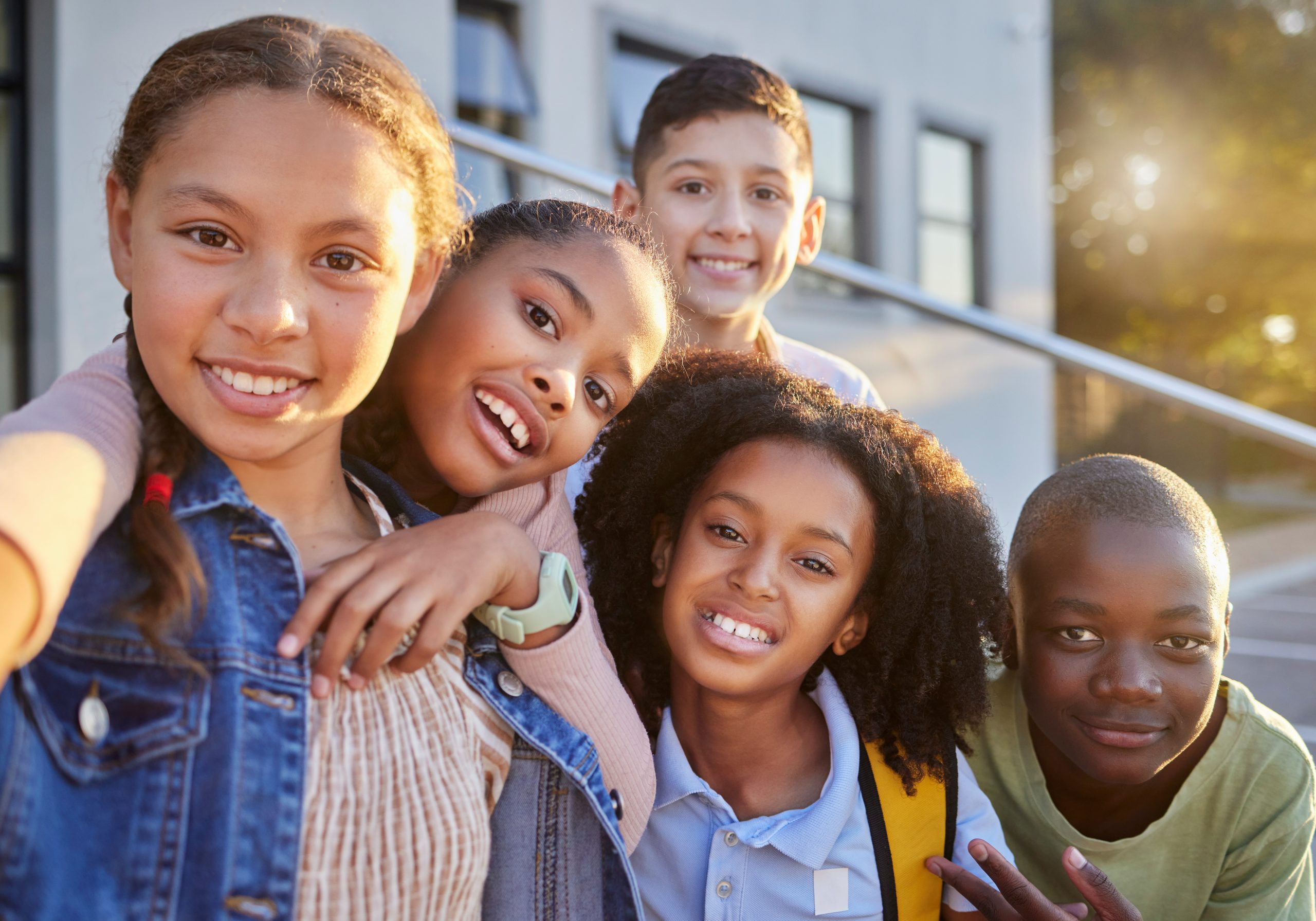What Are Adverse Childhood Experiences (ACEs)?
Read on to explore more about the question “what are adverse childhood experiences?”, including what their long-lasting impacts may be.
Table of Contents
What Are Adverse Childhood Experiences (ACES)?
Childhood and adolescence are very pivotal times in human development. Experiences during childhood can have a huge impact on how a person sees, feels, and interacts with the world. If all goes well during childhood and adolescence, children can grow up to be healthy and happy adults.
However, those who experience adversity during childhood often struggle and may carry these adverse childhood experiences (ACEs) into adulthood.
But just what are adverse childhood experiences? ACEs are stressful and traumatic experiences that occur before adulthood. At least 61% of adults experience one ACE before the age of 18. ACEs are not generally isolated events, either.1

Questions About Treatment?
We’re here to help you get better. Reach out and receive personalized guidance and support.
Examples: What Are Adverse Childhood Experiences?
You may be wondering “just what are adverse childhood experiences?” These experiences are trauma that a child either experiences directly or from witnessing a traumatic event happen to someone else as well.
- Physical, sexual, verbal, or emotional abuse
- Intimate partner violence among parents or caregivers
- Problematic substance use in the home
- Household mental illness
- Homelessness or housing instability
- Having a parent who has gone to jail or is incarcerated
- Parental separation or divorce
Knowing the answer to “what are adverse childhood experiences?” is key to noticing symptoms that arise from them and getting you or a loved one the help and education you deserve.
What Are Adverse Childhood Experiences Risk Factors?
Certain experiences or factors may increase the risk of ACEs. Risk factors for ACES are seen on personal, familial, and community levels.3
- Children who start dating and participating in sexual activity early
- Children who are not close with their parents, or who can’t share feelings or troubles with their parents
- Children who either have few friends or who have friends who participate in violent behavior
- Children with low self-esteem or who struggle in school
What Are Adverse Childhood Experiences or Familial Risks?
The family environment plays a major role in ACEs. The way that a family interacts with one another can either be a protective factor or put the child at a higher risk for ACEs.
- Caregivers who have a limited understanding of a child’s needs or development
- Having parents or caregivers who were also subject to ACEs
- Having a parent who is young or still in high school
- Families who are experiencing poverty or high levels of economic stress
- Families with high levels of conflict and unhealthy communication styles
- Families where violence and aggression are tolerated and justified
- Low or inconsistent parental involvement or supervision
- Use of corporal punishment, such as spanking
- Families who are isolated and disconnected from other people
Community Risk Factors
Even if things may be alright individually and at home, community influences can still put a child at higher risk of experiencing ACEs. What are adverse childhood experiences in the community?
- High rates of community violence and crime
- Limited educational and economic opportunities
- High unemployment rates
- Easy access to drugs and alcohol
- Limited or no safe community activities for young people
- Food insecurity and limited options for aid
- High levels of social friction and community disruption
- Unsafe or otherwise unhealthy environments
What Are Adverse Childhood Experiences?: Preventative and Protective Factors
With conscious effort, the symptoms or side effects of ACEs can be reduced.
- A safe, stable, nurturing, consistent family environment where children feel seen, taken care of, and supported
- Having caring adults and role models outside of the nuclear family
- Having positive friendships and peer networks
- Having a strong support network for the whole family
- Appropriate parental involvement and engagement
- Homes with peaceful conflict resolution
- Families that spend time together positively
- Families that have the resources to meet a child’s basic needs for food, shelter, and health services
What Are Adverse Childhood Experiences’ Protective Factors?
- Having access to resources for economic and financial help
- Stable housing
- Access to medical care and mental health services
- Access to high-quality childcare and after-school programs
- Strong community connection and involvement
- Low community tolerance of violence
What Are Adverse Childhood Experiences and Their Effects on Development?
ACEs may create toxic stress during childhood that impacts development. This toxic stress leads to disruptions in brain chemistry and circuitry. For example, children exposed to toxic stress in childhood from ACEs tend to have a hyperactive and overdeveloped amygdala.
The amygdala is a part of the brain that is responsible for sensing danger and handling stress. When this part of the brain is hyperactive, it leads to a consistently activated stress response.4
This is not the only part of the body that is affected by toxic stress from ACEs. Multiple organ systems are affected by ACEs, and while these effects may not be immediate, they can often be seen as chronic health conditions in adulthood.
Impact of ACEs on Wellness and Development
ACEs may also impair social, cognitive, and emotional development. Children with ACEs have a higher chance to grow up to be adults who struggle socially, emotionally, or mentally.
ACEs are a major risk factor for the development of mental illness and substance use disorder (SUD). This, combined with the chronic stress of unresolved ACEs, can lead to physical disease, disability, and social problems in adulthood. Without intervention, this can lead to early death.
What Are Adverse Childhood Experiences Effects in the Short- and Long-Term?
ACEs can impact a person for the span of their entire life. Children often experience the effects immediately, and if not addressed, these issues can follow a person into adulthood.
The effects of experiencing a traumatic event or circumstance can often be seen soon after the event. This can manifest as trouble focusing, aches and pains, difficulty sleeping, and dissociation.5
Children with higher ACE scores (more than 4) are 30x more likely to have learning or behavioral problems than children with no ACEs. Children with more than two ACEs are more likely to have ADHD and also have a higher chance of bullying others.6
What Are the Long-Term Effects?
Helping a Child or Adolescent Who Has Experienced Adverse Childhood Experiences
If you are wondering “what are adverse childhood experiences?”, your next question may be about how to help a child who has gone through these experiences. While creating a safe nurturing home environment can help buffer other risk factors, ACEs may still occur.
Being an Advocate to Those in Need
- Ensuring the child is in a safe environment where their basic needs are being met
- Allowing them to feel their feelings
- Providing the opportunity to talk, write, or draw pictures to process their feelings
- Getting them involved in a safe, supported activity
- Limiting exposure to traumatic news reports and other risks
- Sticking to routines that focus on togetherness and safety
- Allowing them the opportunity to make decisions for themselves
- Paying close attention to changes in communication, behavior, and emotional responses
- Getting help from a professional if needed
Because childhood is such a sensitive time, getting professional help can be key to preventing negative outcomes in adulthood. Youth counseling, family therapy, and support groups can help heal ACEs early on, therefore reducing their impact in adulthood as well.

Healing Adverse Childhood Experiences at Horizon Treatment Services
Knowing the answer to “what are adverse childhood experiences?” can be the first step to healing. By acknowledging the presence of adverse childhood experiences in your own life, you can begin to heal them.
Unresolved ACEs can be disruptive to your adult life in many ways. By seeking help healing ACEs, you can get your life back on track.
At Horizon Treatment Services, our programs are sensitive to childhood trauma and provide opportunities for healing. We offer several services for both adults, as well as children struggling with ACEs.
Chrysalis
If you are a woman, female-identifying, or non-binary individual, wondering “what are adverse childhood experiences and how can I heal them?”, Chrysalis may be a good fit for you.
Chrysalis is a live-in, female-identifying only program for adult women struggling with mental health challenges or substance use disorder. During this program, you will learn how to regulate your emotions, avoid self-sabotage, learn new coping skills, and improve your interpersonal skills.
Cronin House
The Cronin House offers residential treatment for men, male-identifying people, and non-binary individuals looking to heal their mental health issues and substance use disorders. Similar to the Chrysalis Program, most participants stay for 90 days.
Project Eden
Are you a parent researching ACEs because you worry about how they might be impacting your child’s drug and/or alcohol use? Project Eden is here to help.
Project Eden began in the 60s as a response to escalating drug problems among youth. Since then, Project Eden has helped countless Californian youth and their families.
Project Eden offers several programs for at-risk youth and their families. Programs at Project Eden are cost-friendly and offer payment on a sliding scale. No child or family is ever turned away due to their inability to pay.
Youth Services Program
This program provides group psycho-educational groups and support groups for youth in the Castro Valley, Hayward, San Leandro, and San Lorenzo school districts.
Topics of these groups include handling substance use disorder, decision making, anger management, emotional regulation and conflict resolution skills.
Summer Youth Program
Our summer youth program offers the opportunity for peer counseling training for youth 12-18. This program lasts two weeks and is offered three times each summer. Participants in the program will learn new skills as well as participate in fun field trips.
Lambda Youth Project
This program is specifically for LGBTQ+ youth that are at higher risk for alcohol, drug use, depression, and suicide. This program provides a safe, supported environment for LGBTQ+ youth to meet and discuss their experiences. The Lambda Youth Project also puts on activities, such as an Annual Gay Prom.
Youth and Family Counseling Program
Project Eden is pleased to offer a comprehensive youth and family counseling program. This program includes an assessment, individual counseling, family counseling, group counseling and parental support groups.
Contact Us
Ready to receive guidance, education and support for SUD and/or mental health challenges? Horizon announced a partnership with One New Heartbeat to provide evidence-based mental health recovery services recently, and is ready to help.
At Horizon Treatment Services, you’ll find the trauma-informed treatment and help you need. Get in touch with us today for a consultation.







